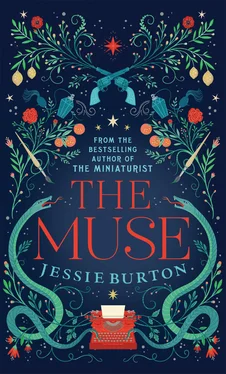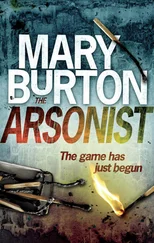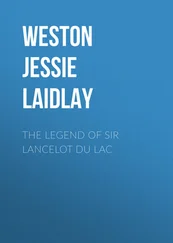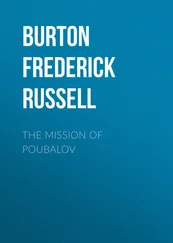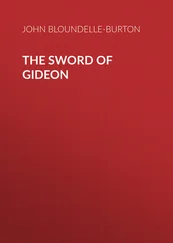He smiled. ‘A bit.’ As he leaned over to kiss me, a man walking past tutted loudly. I couldn’t be sure, but I thought I heard the word ‘ disgusting ’. We ignored him; I was never going to say anything, however much I might have liked to, but I did wonder if Lawrie might speak up.
‘Come on,’ I said, when it was clear that either Lawrie hadn’t noticed, never assuming such a comment might be directed at him — or that he didn’t consider it worthy of attention. ‘You’ll miss your appointment with Mr Big Shot. But you go in first, I’ll follow.’
‘Why?’
‘I don’t want Pamela to know about us.’
‘Are you embarrassed about me?’ he said.
I laughed. ‘Of course I’m not. It’s just — well, if she finds out about you, I’ll never hear the end.’
*
Sitting at my desk, having safely outwitted Pamela, I couldn’t stop thinking about what was going on in Reede’s office above me. I was very curious about Lawrie’s painting. And although my mother always said that if you listen at doors you deserve every burned ear you get, I knew Reede wasn’t going to tell me a thing. Quick was away that day, and Lawrie couldn’t be trusted to relay every particular.
I took the back stairs to the next floor and hesitated before putting my eye to the keyhole. I could feel my pulse beating hard, fearful that one of them inside would turn, and hear me. Lawrie’s painting was propped up on the easel by the desk. It was a perfect rectangle, filled with vibrant colours; vermilion, lavender, indigo, terracotta, livid greens. And to my complete surprise, sitting in one of Reede’s low-slung leather armchairs, was Quick. Once upon a time, the Skelton had been a domestic house — most of the panelling was original — and I imagined Georgian ladies sitting where Quick was now, playing with a spree of little dogs and wondering what syllabub to feed their guests.
What was Quick doing here? She was staring into the empty grate, her arms wrapped around her body. She looked nauseous, as if she was waiting for an explosion. She reached down into her handbag and brought out her cigarettes, busying herself with lighting one.
‘So. Isaac Robles,’ Reede was saying, pulling out a photograph from a buff folder on his desk. ‘Ever heard of him?’
‘No,’ said Lawrie.
‘The Prado in Madrid sent me this. They think it’s him, in Malaga, around 1935 or -6. We don’t know who the woman is, but the photo was most likely taken in his studio, and she’s probably a model he used. It matches up to other images of him in Madrid earlier in the thirties. He was just beginning to enjoy a bit of fame when this photograph was taken. But of course, what has excited me most is that the painting in progress on Robles’s easel looks exactly like it could be yours.’
There was a silence. Lawrie had his back to me, so I couldn’t see his expression through the keyhole, but he was very still, as if he’d been stunned.
‘What?’ Lawrie said, quietly. ‘Is that possible?’
Reede smiled. ‘Thought you’d like that. He’s only started on the lion by the looks of it in the photograph, but it’s fairly emblematic, wouldn’t you say?’
Lawrie took the photograph from Reede’s outstretched hand. His shoulders were hunched, head bent in concentration. Quick remained seated, watching him, dragging deeply on her cigarette.
‘Where did the Prado get this?’ Lawrie asked.
‘They don’t know for sure. Their records from the thirties are not complete, for obvious reasons. Robles might have left it with someone to keep it safe when war broke out. They might not have known what to do with it, so gave it to the Prado. Isaac Robles wasn’t very popular with the authorities, and his work wasn’t really to their taste. You didn’t want to be caught with evidence that you were friends or acquaintances with undesirables.’
‘ “ Undesirables ”?’
‘From what we know, Robles moved in quite left-wing circles. That meant he could have been a political agitator. They probably accepted this photograph and slipped it in their files. Robles didn’t survive to match Miró or Picasso in output and trajectory. But what he did make is superlative. One theory for his small output, other than an early death, is that he destroyed a lot of his work. That sort of practice always makes a painter more special — it’s his rarity. Now, to the point. I believe this painting of yours is what we call a sleeper.’
‘A sleeper?’
‘Yes, it’s been lying in wait for us, overlooked for years. We’re looking at 1936, perhaps,’ Reede continued. ‘The fact there is no frame is unfortunate. You can learn a lot from a frame’s quality. I assume Robles wouldn’t have had access to many, if he was back and working in the south of Spain. But if this is by Robles, and I think it is, then it was painted as he reached the cusp of his powers before war came. Look at the colours, the surreal narrative, the playfulness. It’s highly unusual. I see why he was so prized at the time.’
‘What happened to him?’ Lawrie asked.
‘War happened, Mr Scott. There are several theories. One is that he went north to join forces with other Republicans as Franco’s troops inched up from the south. They never found a grave, but at that time, it wasn’t uncommon. He was from the south, Andalusia, and he lived and worked in Malaga for a time, fairly unsuccessfully. He travelled to Madrid and Barcelona — there are a couple of his lithographs there, fairly minor.’
‘I see.’
‘But at the time this photograph was taken, Robles wouldn’t have been so worried about war. He was working well. He’d abandoned his idealistic, figurative aesthetic once he was back home, and it appears that he started to paint quite differently. A few months before Spain cracked apart, he painted a work that caused a real stir. It’s called Women in the Wheatfield . Have you heard of it?’
‘No.’
Reede turned towards the door, and I swore he looked at the keyhole. I froze.
‘It’s not particularly famous, but it’s a special painting,’ said Quick, and Reede turned back to her. Gradually, I edged my heart back down my throat.
‘Why is it so special?’ asked Lawrie.
‘I’ve done a little investigating,’ Reede went on before Quick could say anything more. ‘We know that Robles sold Women in the Wheatfield in Paris, around the time this photo was taken. A man called Harold Schloss sold it.’
‘I see,’ said Lawrie. Even through the keyhole, I could see that he was uncomfortable.
‘It went to New York for a while, and now hangs in Peggy Guggenheim’s house in Venice. I’ve seen Women in the Wheatfield myself,’ Reede went on, ‘and it has similar qualities to yours. Extraordinary in the flesh.’ He touched the edge of Lawrie’s painting. ‘Sometimes, I think he would have been a genius, had he carried on.’
‘Why?’
‘That’s not always easy to define. But you see, with most artists, you have one thing or the other — the visionary with sub-standard technical skills, or a short time frame of astonishing output that diminishes in quality, for one reason or another. These fellows have no training in composition, and most of them can’t therefore subvert it. Or, you have the excellent trained draftsman with no imagination, who will never paint the world anew. It’s actually quite hard to find someone who has it all. Picasso has it — you should see his early works. It’s subjective, of course, but I think Robles had it too. And I think your painting demonstrates his skills to a higher level than Women in the Wheatfield . Some say his scant works are political; others find them to be escapist tours de force . That is the quality they have — perpetually interpreted, yet always standing up to every iteration. Robles has lasted. You don’t get bored. You see new things. Moreover, on a basic aesthetic level, they wash gorgeously over the eye whilst never being twee.’
Читать дальше
